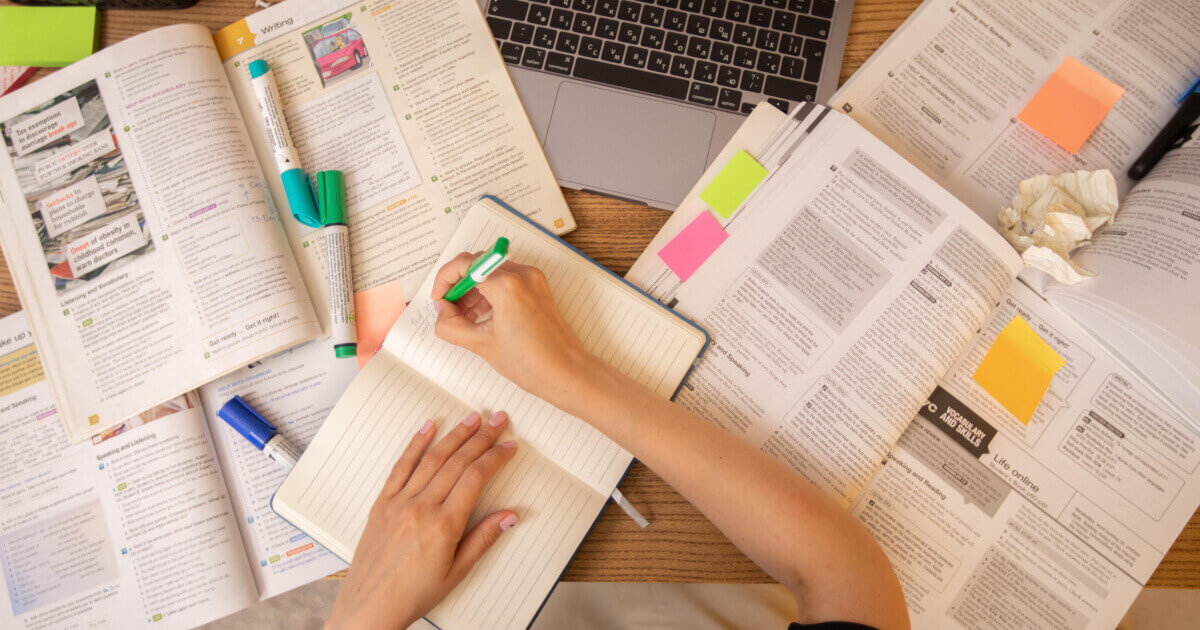
Using timelines as a teaching tool
- Activities
- Tips & Strategies
- Methodology

19.11.2025
Learning another language is not only learning different words for the same things, but learning another way to think about things.
Flora Lewis
While I was researching for this article I came across this quote, and a few things came to my mind.
Firstly, language learning is a key to broadening our minds and making our brains more flexible and efficient.
Secondly, teachers have plenty of different roles throughout the learning process (and this is, my dear reader, a true superpower,) but the most important one is being a guide to the world of new skills and strategies that will be quite helpful in a real-life situation.
Believe it or not, we frequently use techniques which we were taught in language lessons.
However, this material is not about it specifically. It’s about how to become a more effective guide in the exam class. So, IELTS preparation. Here are some things to think about:
IELTS or International English Language Testing System is an exam designed to assess the level of English proficiency of non-native speakers.
All clear, right? One more exam that tests language skills. But does it test language skills exclusively? I wouldn’t be so sure about it.
Of course, it’s a major part of any language exam, but IELTS has something more: it assesses the skills that will be used in everyday life by non-native speakers when they eventually move to the English-speaking world.
That is why strategies are crucial. Teachers who teach such classes should plan their lessons keeping in mind these objectives.
The lessons ideally should have a balance between systems and strategies.
Moreover, the preparation classes are basically simulators as well, because students must get used to the test timing, requirements, and other important things. And this also needs to be mentioned.
So, going back to the quote that I used in the beginning, it really shows how exam classes should be planned. Aim to make your students think and apply learned skills actively and outside the classroom as well.
Make them talk: the teacher’s playbook for powerful speaking lessons
As I mentioned before, the lesson planning of IELTS classes can be different from the general English lessons, because we want to help students get a higher band using the language they learned. So here language systems and skills are tools for reaching better results.
Here are the key recommendations on how to choose from existing or build an effective IELTS preparation lesson (or series of lessons) from scratch:
| Aspect | General English Lessons | IELTS Preparation Lessons |
| Goal | Improve overall fluency, accuracy, and confidence in English. | Achieve a specific band score by mastering exam tasks. |
| Focus | Communicative competence, real-life contexts, and gradual progress. | Exam strategies, timing, academic vocabulary, and structure. |
| Materials | Authentic texts, dialogues, and role plays. | IELTS-specific tasks: reading passages, audio recordings, and academic essays. |
| Assessment | Informal, continuous, communicative success. | Formalized assessment based on IELTS band descriptors. |
| Lesson Structure | Warmer → input → practice → freer use. | Warmer → exam task practice → strategy explanation → timed activity → feedback. |
| Teacher’s Role | Language facilitator and motivator. | Exam coach + language teacher, providing tips on scoring. |
As we can see in the summary above, IELTS lesson is focused on training the students and developing their skills and subskills. Grammar, vocabulary, and pronunciation are the tools.
When creating IELTS lesson plans, always tie activities directly to exam requirements, unlike General English lessons, which are broader and communicative. IELTS lessons need structured skill-strategy integration, timed practice, and feedback aligned with band descriptors.
This outline will be handy for teachers who are looking for ready-to-use lesson plans or for someone who prefer DIY lesson plans that are personalised and tailored to the needs of particular students.

Engaging Games to Practise Parts of Speech
Read moreThere are dozens of resources available for IELTS teachers to support them and their students.
Here you can find some lesson plans.
To be honest, the availability and accessibility of the technology can be problematic, because everyone can create their own content, right? IELTS and English learning in general is not an exception too.
If you try to find some materials for preparation or with tips, it can be difficult to check credibility of the creators. And videos can be extremely useful (if you need your students to work individually on some aspects or as an extra resource).
Here are some most popular and trusted YouTube channels to be used while preparing for IELTS.
Subscribers: ~1.4M
Content: tutorials by Chris Pell (ex-IELTS examiner). Clear explanations on writing, speaking, reading, and listening with a strong focus on Writing Task 2 essays.
Biggest Advantage: provides step-by-step strategies for essay structure, coherence, and achieving high band scores. Great for teachers looking for simplified ways to explain complex IELTS writing concepts. Also, the channel offers videos with speaking practice, with various strategies and tips on how to enhance own results.
Subscribers: ~1.3M
Content: official IELTS channel run by the creators of the exam. Offers sample tests, tips from examiners, band score explanations, and updates about the test.
Biggest Advantage: completely authentic source — advice and samples directly reflect what examiners expect. Ideal for building trust with students.
Subscribers: ~2.3M
Content: run by E2Language, provides highly visual and engaging lessons for all four skills. Includes live classes, grammar and vocabulary boosters, and exam simulations.
Biggest advantage: very student-friendly and interactive. Teachers can adapt their video exercises into classroom practice. Especially strong for Listening & Speaking strategies.
Subscribers: ~1.1M
Content: created by Simon (former IELTS examiner). Focuses on practical strategies and model answers, particularly for writing. Videos are short, structured, and easy to digest.
Biggest Advantage: Simon is well-known for his “keep it simple” approach — ideal for learners who get overwhelmed by complicated strategies. Great supplementary source for teachers.
I hope my findings will be helpful to you if you ran out of ideas or you just start preparing for this exam. Remember, we teach for life by sharing skills and secrets which can be used in real life.
Yulia Popyk
Author
Teacher of General English & Young Learners, Exam Prep
Comments
Leave your comment